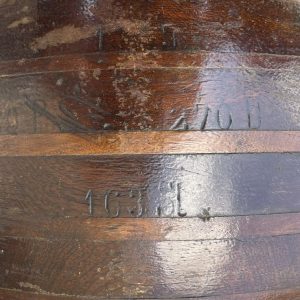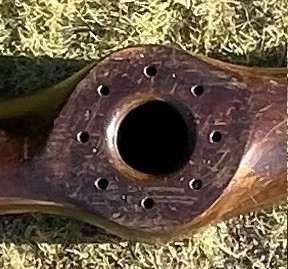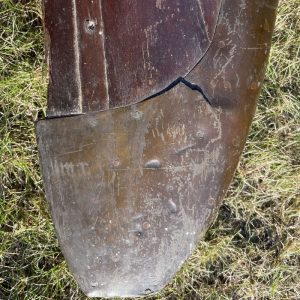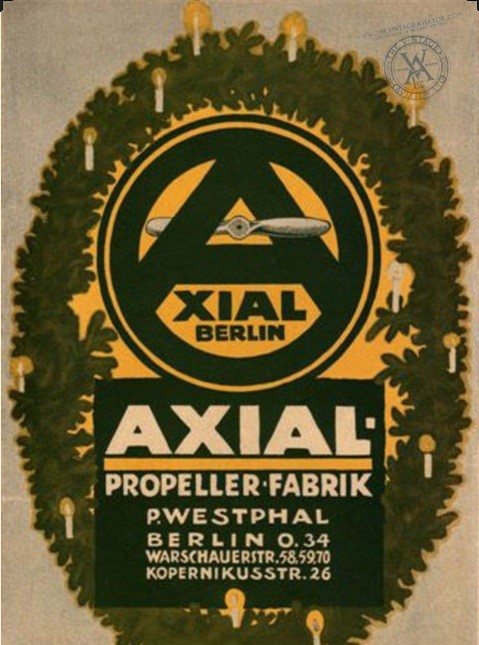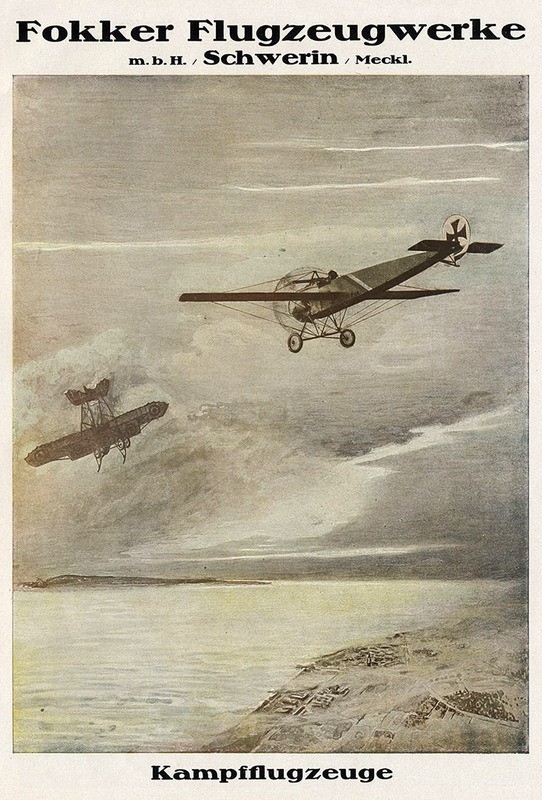About the propeller. The likely production period is the end of WWI. The markings do not allow full identification, the producer name is missing, might be marked by decal (?). Other data – like the engine type was determined by the power markings (150 PS, which was not common for the Germans at that time. The rest of propeller markings is the following: pitch (St-163, rare accuracy), the diameter (270D). Number of bolts: 8. Privately owned (2024).
Construction. The propeller lamination consists of 9, plies. With original, darked by time coating it is difficult to identify wood. Rarely met plies with different thickeness: 23 mm wrapped and divided by 18, 8, 7, 6, 9 mm thick ones. The tip and 60 cm of diameter with braas shething.
Aircraft and Engine. The propeller was working with Benz Bz.III, anti-clockwise (front view), six-cylinder, water cooled inline engine developed in Germany in 1914. Developing 112 kW (150 hp) at 1,400 rpm from 14.3 liters. Several applications are possible, like: Friedrichshafen FF.33, Friedrichshafen FF.41, Hansa Brandenburg KDW. The first one seems to be most plausible, as the prop was purchased from Gdynia (where at least one aircraft of that type was based). Also, the asheathing is characteristic for the seaplanes of that period.
References:
- Bob Gardner, German Propeller Makers of WW I.
Period Advert. Axial, about 1918.
Period Advert. Fokker Flugzuegewerke, ca 1917.

